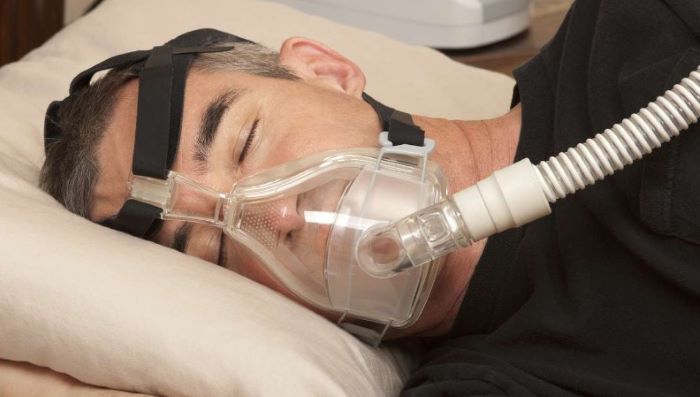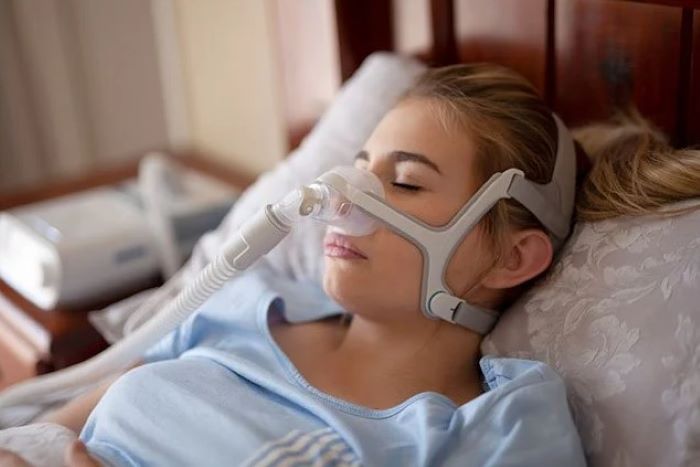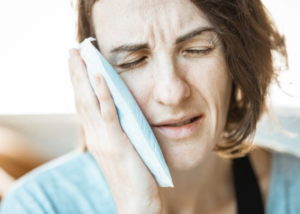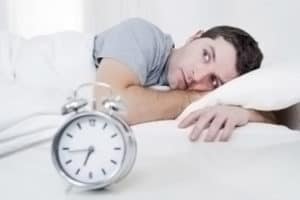If you’ve been diagnosed with sleep apnea, your doctor will recommend a few treatment options to aid your breathing during sleep. You must discuss these options with your doctor to make an informed decision on the treatment that is most effective and suited to your lifestyle. This guide explores two of the most common treatment options available: BIPAP vs. CPAP.
What is BIPAP and How Does it Work?
BIPAP is a type of PAP therapy involving a machine that adjusts the pressure level when you inhale or exhale. BIPAP machines should not be confused with APAP machines, which automatically adjust the pressure level of the air based on your breathing patterns. BIPAP machines are best suited for more complicated issues, such as central sleep apnea and complex sleep apnea (a combination of central and obstructive sleep apnea).
There are some similarities between the use of BIPAP machines and CPAP devices. They both require a motor and air compressor, as well as an optional humidifier. The machine brings in air from the room and then filters that air before pressurizing it to the appropriate level. The pressurized air passes through a tube and a mask into your airway. Pressurized air acts like a splint to prevent your throat from collapsing and blocking your airway passage while asleep.
One major difference that a BIPAP machine has to a CPAP machine is that the latter uses a single air pressure setting. On the other hand, BIPAP machines use varying pressure levels for inhalation and exhalation. Your doctor will determine the appropriate pressure settings when you inhale and exhale. The customizable air pressure setting is recommended for individuals who require nighttime breathing assistance.
Key Differences: BIPAP vs. CPAP
The primary difference between BIPAP and CPAP machines is the variant pressure settings in the former. You can program the CPAP machine to deliver two distinct pressure settings when you inhale and exhale. Meanwhile, a CPAP machine uses a uniform air pressure setting for inhalation and exhalation. The settings of CPAP machines make them a suitable choice for patients with obstructive sleep apnea. The use of BIPAP machines is for those with central sleep apnea and complex sleep apnea.
Aside from the difference in air pressure settings, another primary difference between the two types of machines is portability. CPAP machines are more popular and are now available in portable and travel sizes. On the other hand, there are no portable versions of BIPAP machines available yet.
The variant pressure settings available with BIPAP devices mean that you can deliver higher pressure, with settings up to 25. For this reason, many users report that BIPAP machines are far more comfortable because of their ability to adjust the air pressure settings.
Why Choose BIPAP Therapy?
There are benefits and drawbacks to choosing BIPAP or CPAP therapy. Let’s explore the advantages of BIPAP that makes it the preferred alternative over the more popular CPAP machines.
- BIPAP is best suited for patients with breathing restrictions. Patients with breathing problems find it difficult to get adequate oxygen and expel carbon dioxide when breathing. Using a BIPAP device can overcome this issue by facilitating improved gas exchange and improving natural body function. It also gets rid of harmful carbon dioxide gas from the body, which can be fatal if you have an excess amount of it.
- BIPAP facilitates better exhalation. If your doctor has diagnosed that you need a higher air pressure level when you exhale, a BIPAP device can help with this. On the other hand, it can be difficult to exhale properly when using a CPAP machine because of the uniform air pressure setting. It’s not fun when you have to work harder to exhale.
- BIPAP devices improve the timing of your breathing. Most BIPAP devices have a function that suggests an ideal rate for your inhalation and exhalation. It evaluates your sleep respiration rate over a period and automatically increases the air pressure based on those readings. Once your breathing normalises, it will revert to its original air pressure setting.
Factors to Consider Before Using BIPAP
While there are advantages to using a BIPAP machine, you must also be aware of the potential drawbacks. The first factor to consider is the cost. BIPAP machines cost more than CPAP machines (up to four times more). You can get your insurance provider to pay for this device to reduce out-of-pocket expenses, but it will still be a significant investment. Also, many insurance companies require you to show proof that the BIPAP is medically necessary.
The typical cost for a BIPAP machine is $1,700 to $3,000 depending on the model and the features. Meanwhile, CPAP machines start at $500 and can cost up to $1,000.
There will also be an adjustment period to the use of BIPAP machines. If you’ve used a CPAP device before, the mask and tubing will be the same. However, you must get used to the variations and higher pressure settings of the air in your airways.
BIPAP vs. CPAP: Which is Right For You?
BIPAP and CPAP machines have several similarities, and many people mistake these two as being interchangeable. The key differences between the two types of devices are discussed above to help you establish the distinction. You must know the differences because they can have a significant impact on the success rate of the treatment. If you want to switch from using a CPAP machine to a BIPAP one, you should consult your doctor first.
You should also take the same level of precaution when deciding between CPAP and BIPAP machines. Many CPAP users report discomfort in using the device for treating sleep apnea and its symptoms. BIPAP therapy provides an alternative option to overcome that discomfort with more variety in the air pressure settings so that you can breathe normally and prevent airway blockage.
The comfort and convenience of using either device are critical to improving adherence to the treatment. However, you should always consult with a sleep specialist as they know best the ideal treatment for you based on your symptoms and the severity of your sleep apnea problem.

























